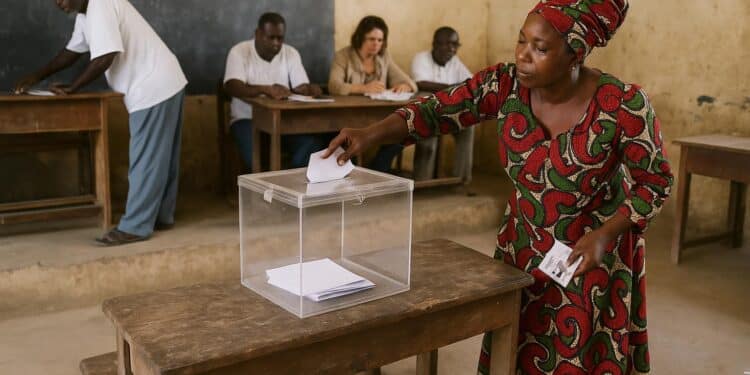High-Stakes March 2026 Presidential Election
In March 2026, voters in the Republic of the Congo will return to the polls for a presidential election that many diplomats already describe as pivotal. Five years after the last contest, the ballot will determine who guides the country’s policies and diplomatic posture until 2031 and beyond.
The constitution, revised in 2015, limits presidents to three consecutive terms and therefore allows incumbent Denis Sassou Nguesso to seek a final mandate. Government figures display confidence, citing organisational experience and cohesion inside the presidential majority, while insisting that electoral law will provide an equitable framework for all candidates alike.
Opposition Fragmentation and Leadership Puzzle
Inside the opposition, the atmosphere is markedly different. Several parties have introduced potential nominees, yet none has emerged as a unifying personality capable of reproducing the momentum enjoyed by Pascal Lissouba in 1992. Multiplicity, rather than unity, presently shapes their discourse and stretches limited campaign resources even further today.
Calls for what activists term a ‘genuine national dialogue’ illustrate the opposition’s strategic dilemma. Supporters view such talks as a path toward procedural guarantees, but ruling coalition officials counter that competitive politics naturally involves adversarial positioning and that disputes should be resolved through courts and the independent electoral commission.
Analysts note that, with ten months remaining, drafting a single opposition platform and primary process represents an arduous timetable. Electoral calendars must lock in candidacies six months before polling day, compressing space for negotiation. Veteran campaigners privately acknowledge that fragmentation could outweigh popular appetite for alternation this year.
Continuity Message Rooted in Historical Memory
Within government circles, that assessment fuels reassurance. Advisers emphasise programme continuity in infrastructure, hydrocarbons management and regional security. They argue that voters, mindful of the civil conflicts of the 1990s, prefer incremental reform under tested leadership to ventures perceived as risky. Polling trends remain largely anecdotal yet supportive.
Historical memory indeed weighs heavily on Congolese political psychology. The enthusiastic transition from single-party rule in 1991, crowned by the peaceful handover following the 1992 election, soon gave way to ethno-regional mistrust and violence. Many citizens consequently associate abrupt change with instability, an association opposition strategists must carefully address.
Socioeconomic Challenges Shape Campaign Themes
Yet the administration also confronts critiques of its current term. Commentators highlight persistent unemployment, urban service gaps and youthful demographics eager for opportunity. Officials respond by pointing to macroeconomic stabilisation efforts and the renewal of dialogue with multilateral lenders, insisting fresh projects will mature before the March vote.
Civil society organisations continue to press for transparent logistics. They request early publication of polling-station lists, biometric voter-roll updates and the deployment of domestic observers across the country’s twelve departments. The national electoral commission states that operational planning is on schedule and invites feedback through its provincial branches.
Regional Diplomacy Watches Brazzaville Closely
In diplomatic circles, the 2026 exercise is watched closely. Regional partners, recalling previous mediation roles, express optimism that institutional mechanisms can manage disputes internally. European and American envoys privately echo that sentiment, stressing the importance of credible procedures while recognising Brazzaville’s strategic relevance for Gulf of Guinea security coordination.
The presidential majority meanwhile courts youth groups, labour unions and faith leaders through thematic forums. Messages prioritise continuity, peace and graduation from lower-middle-income status. Campaign managers underline that the same constitutional framework allowing alternation equally legitimises a final term bid, framing their candidate as guarantor of institutional maturity.
Risk Narratives and Electoral Mechanics
Opposition campaigners, for their part, link economic grievances to the need for power rotation. They caution that dismissing citizen frustration could erode turnout and produce surprise. Several pledge to rally behind whichever contender leads in early opinion sampling, yet personal ambitions and regional balances complicate the crafting of a compact.
Beyond personalities, the campaign may turn on risk narratives. Continuity advocates emphasise predictability in fiscal and diplomatic affairs, referencing volatility in commodity markets. Change supporters answer that institutional safeguards, from the constitutional court to a professionalised armed forces, now exist to avert any relapse into crisis.
Logistically, the electoral law mandates a two-round system. Should no contender secure an outright majority, a runoff two weeks later would follow. Strategists in both camps quietly prepare for such a scenario, reinforcing alliances with smaller formations and independents whose endorsements could tilt the decisive second encounter.
Economics, Security and Voter Sentiment
International commodity prices, climatic shocks and regional security developments could further influence voter mood by affecting fiscal space. Government planners forecast stable oil output and incremental diversification, while critics believe structural adjustments ahead might constrain social spending. Either reading adds another layer of uncertainty to an already intricate race.
Countdown Toward Another Democratic Milestone
As March approaches, diplomatic observers advise patience. Congo-Brazzaville’s institutions, refined over decades, will once again be tested, yet prevailing elite rhetoric stresses legality and peace. Whether confidence or determination ultimately prevails, the electoral exercise itself represents another milestone in the republic’s steady, if complex, democratic maturation this cycle.












































